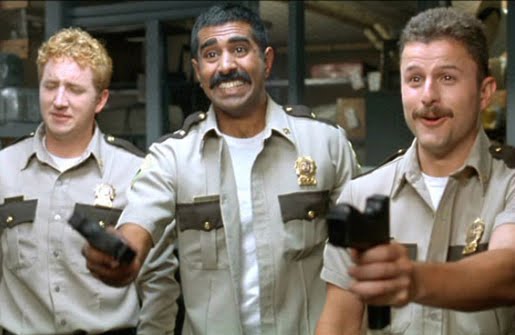Do you deny my analysis of the limitations of EBM are valid?
Yes I do.
As I described in a post above.....
Almost all research in the U.S. is funded by private companies.
Estimates vary from 50-65% for clinical trials. But you know.... 50-65%. That's almost all.
Its hard to pin down how much is done by industries that don't have a stake in it (Celera, for example, was a massive source of clinical research but has no horse in the race, it simply wanted a massive bounty offered to whomever sequenced the genome and published TONS of research from the ancillary discoveries). But it is known, and proudly stated, by the federal government that they sponser 35% of all clinical research trials and >50% of all non-clinical medicine-centric research. But yea. "almost all" seems accurate.
On the othe RCT's with enough power to provide grade A or B evidence are astronomically expensive.
Almost all grade A or B evidence is created by metanalysis of grade C evidence. So I have *no* clue where you are getting this from. For the very reason that no one does research that wold yield A or B level research given the absurdly difficult task that is for any single research trial. Now if you could create grade A or B evidence from a single RCT I have no doubt it would require basically pulling a farmingham (paying an entire town for decades to be involved) which is obviously expensive. But no one is doing that anywhere AFAIK.
As such, that money is only invested in areas where a pharmaceutical company has potential to make enough back to justify the cost.
No doubt that Pharma invests in its own products. But thats like criticizing me for spending my money on food and toilet paper for my own apartment rather than yours. If I invest enough money in food to actually have something good to share, I will.
OMM is and never will be the kind of thing that is going to generate research trials.
A bigger issue is that OMM is similar to surgery (which is totally find with EBM yet can never be double blind tested), it requires a skilled practioner to perform and you cannot possibly double blind since it would be unethical to the patient to send incorrectly trained people in to do things and it would be non-blinded to send in correctly trained people to be the control group's doctor. But that lack of double blind researching has never stopped surgery from embracing research and experimental design to the max. The max just tops out at case reviews and retrospectives. OMM can do that.
Evidence based medicine is great.
However, it has a real possibility for abuse for two reasons.
1. A faulty assumption seems to have weaseled its way into previously intelligent discussion. The idea that the lack of research on a subject is equivalent to negative evidence.
Let me stop you there.
you are correct. People who feel this way are like libertarians who judge porn stars and strippers. They have a massive gap in a basic understanding of how their beliefs are supposed to work if they are being logically consistent.
They are not the same. Lack of research is lack or research. Period. If none exists, then you move down the line to case series, case presentations, and anecdotal evidence. While not as strong as a RCT, they still have value
But there aren't case series. Or retrospectives. Or studies without large flaws in them. There are seas of case reports, but even those rarely get collected (though, yes, if you want to show me 5. you will be able to. im talking big picture) into anything of any meaning. There are plenty of deeply flawed studies out there.
A lack of research is only a lack of research. An abundance of weak research is a bit different. OMM can (and I believe should) be researched at much higher levels than it is, but there is some sort of subtle pervasive hesitancy to actually arrange for these types of studies on it.
A person that doesn't have a job is not necessarily a bum. There may be 100 reaosns why they are unemployed at any given moment. But if you look at all the effort they put in and its only lackadasically mailing out apps to burger king and taco bell when he has a degree in nuclear physics, you get a feeling (a feeling that *means* nothing but you cant help but feel) that they are either hiding a defecit in there qualifications or are just afraid to enter such an intense field with all its professional scrutiny. They aren't trying anywhere near as hard as they should to market themself, and you wonder why.
2. The flow of "evidence" in this country is controlled by private companies who have a vested interest in one outcome over another.
Complete horsecr@p. Already told you that 35% to 50% of all clinical research has no private company finger prints on it and >50% of the benchwork is the same deal. Even if they were both only 25%, the fact that 25% of the research was moving freely would put INSANE pressure on the other 75% to release quicker and produce more.
Often, these studies are biased, and there is a serious conflict of interest.
Yes, often the papers that do have private funding do have conflicts of interest. Its why we are all trained extensively in knowing how to actually read and understand statistics and medical jounral critiques. There will never be a shortage of people who want to make a name by ripping a hole in the tiniest of flaws in medical research. Believe me... when the conflict of interest causes an issue 1) only those without medical/statistical literacy are fooled and 2) plenty of people will blow up the document within a month of its publication.
Perhaps more important, and I'm throwing you a bone, is the percentage of research that is done by people just to have research. Stuff that is going to change any treatment or outlooks on pathology. It simply exists to get a publication under someone's belt and exists as static that we have to tune out. THOSE are the annoying part of EBM, because you have to always hyper-analyze these to make sure there are no redeeming qualities. and when there aren't you're angry you wasted your time discovering what the 4th best option for treatment of the 3rd most common cause of bacterial otitis media is.
That does not mean that all the drugs a pharmaceutical company comes up with are crap. It does mean that we have to treat even RCTs with skepticism.
No. No we dont. If you're reading it with skepticism you are reading it incorrectly.You need to know how to read stats and realize that in most studies if there isnt a NNtT or a NNtC there is something they are hiding about the drug. If you dont see a positive predictive AND negative predictive value, there is something odd about the test they are hiding. You need to read them with a *purpose*. You have to know what the drug claims to do and what the singlular stat you need to see to prove that is.
Everyone shows their best looking diagram and the "name" of the test often puts you in a false sense of security, but if the NNtT/C or the PPV/NPV isnt there you should be asking for it. Its what EBM is all about. A RCT is inherantly a pure thing. The raw data, minus unethical tampering, is the gold that you base your clinical practice on. The bars and charts only mean something if they are the *correct* bars and charts for what you want to do with it.



